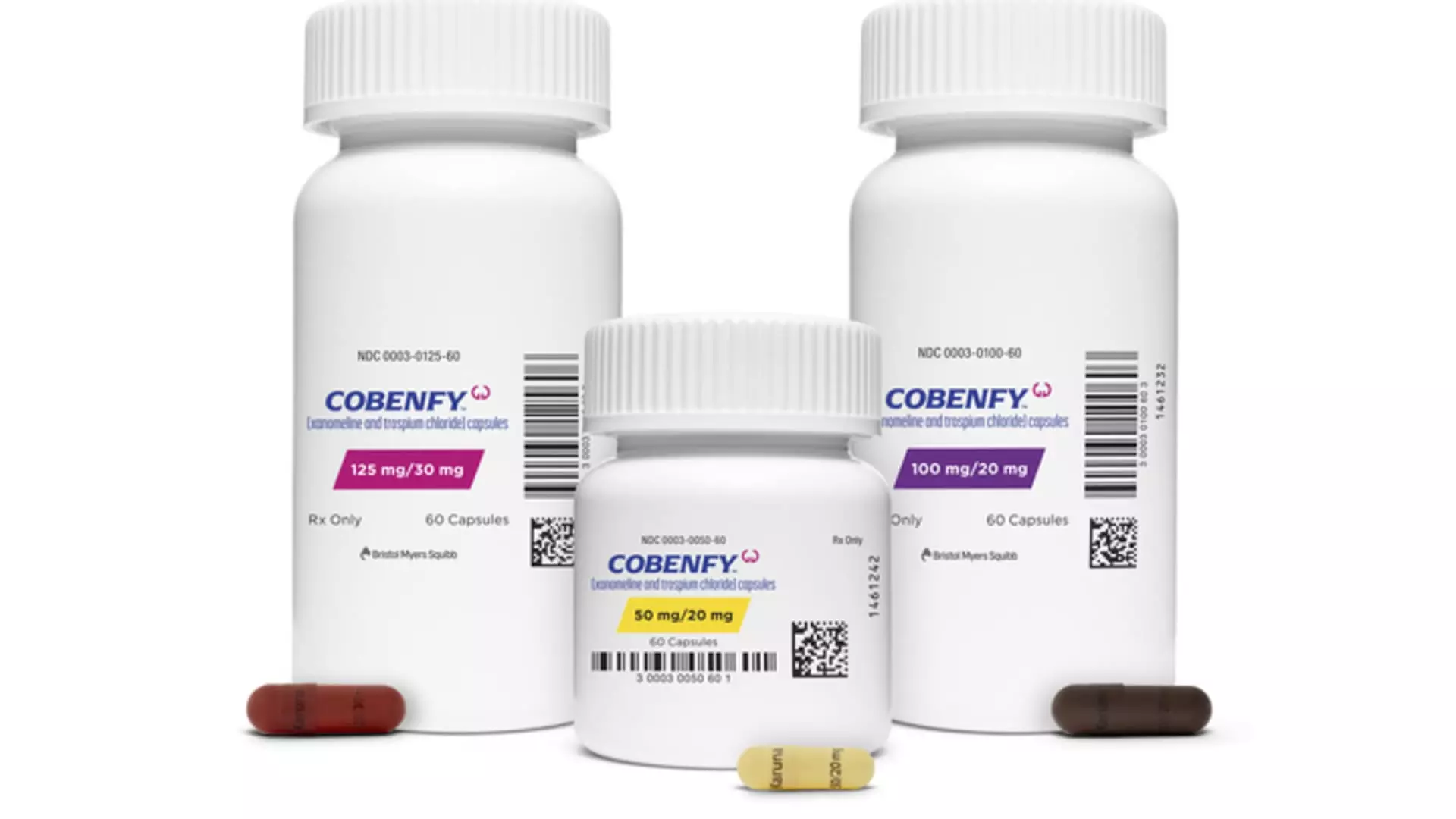The landscape of mental health treatment has long grappled with the daunting complexities of schizophrenia, a severe and chronic disorder affecting millions worldwide. For over seventy years, the therapeutic options available to patients have remained largely stagnant, primarily revolving around conventional antipsychotic medications that target dopamine receptors in the brain. While these existing treatments have been beneficial for some, they often come with significant side effects, leading many patients to discontinue their use. This ongoing struggle highlights the pressing need for innovative solutions, which has culminated in recent developments surrounding Cobenfy, a groundbreaking medication approved by the FDA.
On a pivotal Thursday, the Food and Drug Administration (FDA) granted approval to Cobenfy, a novel drug developed by Bristol Myers Squibb, marking an essential milestone in the treatment of schizophrenia. As the first treatment of its kind in more than seven decades, Cobenfy represents not just a new medication but a potential paradigm shift in how schizophrenia is managed. This development comes at a critical time, as nearly 3 million adults in the United States are diagnosed with schizophrenia, with only a fraction receiving treatment.
What stands out about Cobenfy is its innovative approach; it operates without directly blocking dopamine, a mechanism that has been shared by traditional antipsychotics. Instead, it utilizes a unique combination of xanomeline and trospium, designed to mitigate the adverse side effects commonly associated with conventional therapies. This is a significant step forward, addressing the considerable challenge of medication tolerability which leads to high dropout rates among patients.
Economic Considerations and Access to Treatment
While the efficacy of Cobenfy promises to improve patients’ quality of life, its pricing will undoubtedly influence its accessibility. Set at $1,850 per month, or $22,500 annually before insurance adjustments, the cost reflects broader trends in the pharmaceutical industry where high prices frequently provoke scrutiny. Nonetheless, company executives maintain that this pricing aligns with existing treatments and assert their commitment to minimizing out-of-pocket costs for patients, particularly those under Medicare and Medicaid.
Despite these assurances, questions loiter over how Cobenfy will compete in a market saturated with lower-priced alternatives, notably generic versions of established medications. This pricing dilemma raises concerns about whether access to Cobenfy will be limited primarily to patients who have exhausted other options, potentially relegating it to a last-resort treatment rather than a first-line intervention.
Transformational Changes in Treatment Paradigms
Andrew Miller, a significant figure in the development of Cobenfy, encapsulates the hope imbued in this new treatment: “I think there’s potentially a really transformational moment in how we treat and talk about schizophrenia.” His sentiments reflect the need for a shift in perception and care for this often-stigmatized patient population. The real testament to Cobenfy’s success, he argues, will emerge in the subsequent five to ten years as its impact on patient outcomes becomes evident in clinical practice.
Well-versed consultants predict that Cobenfy could grow to become the standard of care in the coming years, contingent upon physician education and increasing familiarity with the drug’s profile. Its twin-pronged mechanism not only reduces dopamine activity but guards against troublesome gastrointestinal issues—a boon for patients who have previously cycled through multiple antipsychotic options.
The journey toward FDA approval for Cobenfy was underscored by robust clinical trials demonstrating its effectiveness compared to placebos. Alongside safety assessments over the course of a year, the trials revealed that side effects were generally mild, predominantly gastrointestinal in nature, and tended to wane over time. This data provides a promising outlook for Cobenfy as a viable option for a cohort of patients who have long suffered with inadequate treatments.
Moreover, Bristol Myers Squibb’s ambition does not end here. The company has launched additional research initiatives examining the potential of Cobenfy for treating psychosis in Alzheimer’s patients. This forward-thinking mindset reinforces the belief that Cobenfy is more than just a new drug; it could represent a breakthrough in how we approach treatment across various mental health challenges.
As Cobenfy prepares for its market launch, the excitement surrounding this new treatment encapsulates a blend of hope and cautious optimism. It signifies a necessary evolution in managing schizophrenia, addressing critical gaps in the current therapeutic landscape. While the challenges of pricing and access remain pressing concerns, the approval of Cobenfy heralds a new chapter for millions affected by this debilitating disorder, offering them not just a medication, but a renewed sense of agency in their mental health care journey. In a field rife with uncertainty, Cobenfy stands as a beacon of potential progress—a transformative opportunity eagerly anticipated by both clinicians and patients alike.

